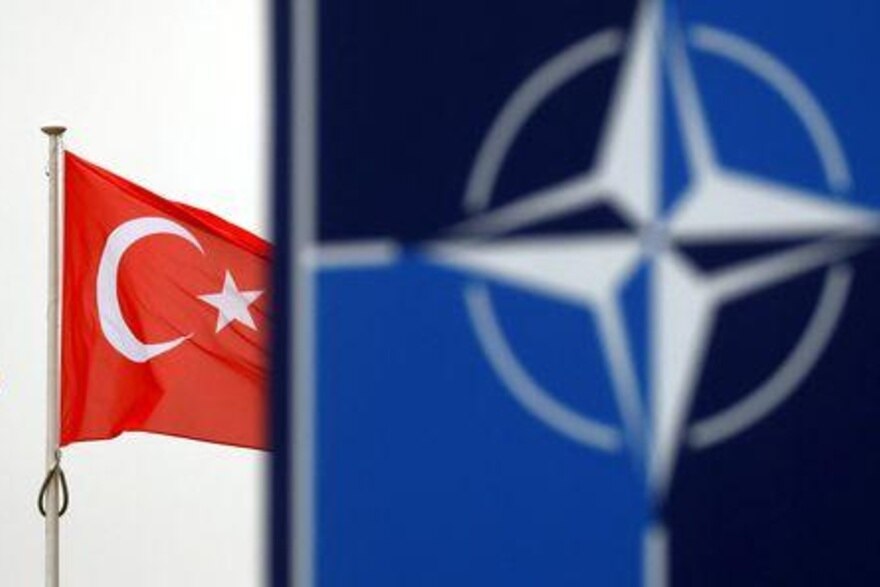« Europe is debating its dependency on countries with different geostrategic orientations, like Russia and China. How dependent is the West on Turkey though? » reports Burak Ünveren in Deutsche Welle.
Since Russia’s war of aggression in Ukraine, Europeans have begun to discuss their dependencies on countries, which do not necessarily share their values.
So where does Turkey fit in?
Ankara’s aspirations for a greater role on the global stage is accompanied by their increasingly aggressive and nationalistic rhetoric towards its Western partners. Today, Turkey, a candidate for accession to the European Union, is not what the West exactly wants it to be — but is still an important player in global politics.
Here are a number of reasons why Western capitals are dependent on Ankara.
The mediator for Moscow and Kyiv
The Russian war in Ukraine meant many things for the international community, but for Turkey it provided a diplomatic opportunity. Already in the first days of the invasion, Turkey emerged as an irreplaceable mediator between Russia and Ukraine as Western countries were not enthusiastic about talking to Russia. Ankara enjoys good relations with both Moscow and Kyiv — which is a rare breed nowadays.
Turkey started to serve as a channel for solving major problems such as the export of Ukrainian grain from Ukrainian ports. Prior to the war, Ukraine was one of the world’s largest exporters of wheat, corn, barley and sunflower oil. The export agreement between Russia and Ukraine was signed under the mediation of Turkey and the UN in July in Istanbul.
Moreover, to this day, Turkey remains as the most plausible option on the table with regard to the location of possible future peace negotiations between the two parties.
The NATO ally whose green light is absolutely necessary
Turkey has been a member of NATO since 1952. The fact that it constitutes the second largest army of the alliance after the United States, and that it is located at the southeastern flank, makes Turkey a major security provider to the transatlantic alliance.
Currently, Sweden and Finland are trying to convince Turkey to approve their NATO membership.
Last week, Sweden’s new prime minister, Ulf Kristersson, wrote a letter to Turkish President Recep Tayyip Erdogan requesting a meeting about the issue. Now both parties are set to meet in Turkey. Ankara accuses Sweden and Finland of being a safe haven for the members of the PKK, the Kurdistan Workers’ Party, an armed entity which is listed as a terrorist organization by both Turkey as well as the EU and the United States.
The manufacturer of affordable security
The growing importance of Turkey’s defense industry has made it an important player which directly affects Western interests.
The Turkish-made Bayraktar TB-2 armed drones have proven themselves very effective in multiple conflicts in the past years. According to a 2021 report of BAKS, the think tank of the German Armed Forces, the Turkish drones played a decisive role in the in the Nagorno-Karabakh conflict.
They’re also having an impact in the war in Ukraine and have reportedly been helping the Ukrainian army to defend its territory against Russian forces. Last month, Ukrainian President Volodymyr Zelenskyy honored Haluk Bayraktar, the CEO of Baykar, the manufacturer of Bayraktar drones, with the Order of Merit, 1st class, as a sign of gratitude for its support.
When the Ukrainian people raised funds in order to buy new drones for their armed forces, Baykar responded by donating these drones to « the patriotic Ukrainian people to achieve the goal they set. »
The low cost of the Bayraktars makes Turkey a unique partner for countries who cannot afford high-cost military equipment or research, but are looking for an alternative. According to a recent report by the German Institute for International and Security Affairs (SWP), the « arms sales to Africa are skyrocketing and have made Turkey a rising arms supplier on the continent. »
The key actor in Europe’s migration vulnerability
The fact that Turkey borders many of the countries to the South and to the East does not only provide Turkey with capabilities in terms of its defense policy but also in terms of a vulnerability of the European Union, namely its migration policy. Erdogan has not hesitated to threaten Brussels, Berlin and other European capitals multiple times in the past with « opening the doors, » which would technically mean that refugees have open access to Europe.
Ankara’s threats have objectively been successful and paid off in the form of the 2016 refugee deal between the EU and Turkey, which foresaw the payment of €6 billion ($6 billion) to Turkey. In return Turkey would accommodate the refugees on its territory.
Germany’s Turkish diaspora
« More than 60% of Turks in Germany voted for Erdogan, » ran the headline in many German newspapers in 2018 after Turkey’s general election. Indeed, a remarkable percentage of the Turkish community in Germany identifies or sympathizes with the Turkish state.
Another component of this issue is domestic security: According to the Federal Office for the Protection of the Constitution, there are multiple radical ideologies threatening the German constitution. In addition to the Islamist groups, the ultranationalist Grey Wolves, the Kurdish PKK sympathizers as well as left-wing extremist groups are under state observation.
The developments in Turkey impact on the dynamics between these groups, and in some cases, the Turkish state exerts direct influence on these groups, such as the Grey Wolves.
Deutsche Welle, October 27, 2022, Burak Ünveren, Photo/Francois Lenoir/Reuters

